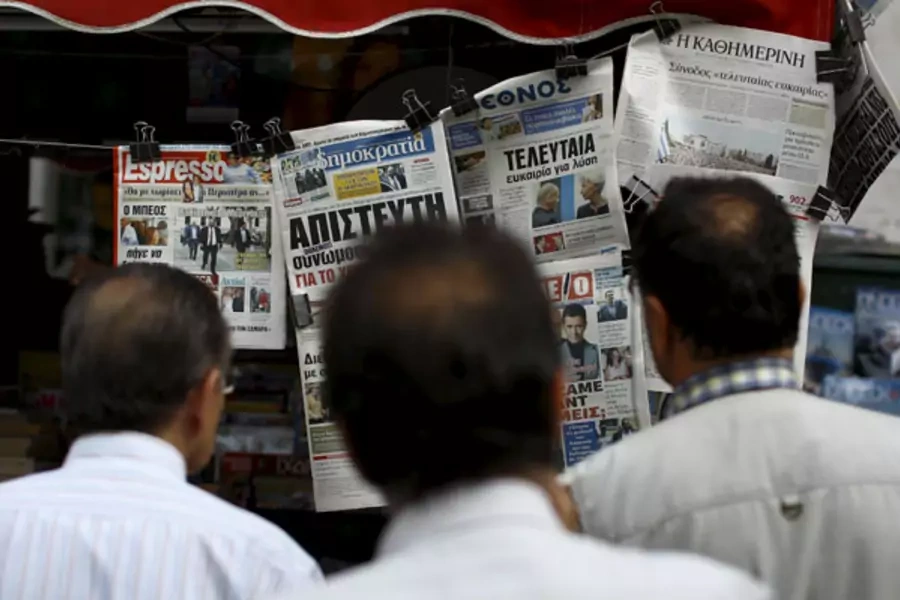More on:
European finance ministers met earlier today and afterwards stated that new proposals from the Greek government were "broadly comprehensive" and "a solid basis" for restarting talks, but made clear that the Greek plan was far from complete and received too late for a deal to be concluded today. Markets had rallied earlier on hopes of a deal. But they fell back on comments from German Finance Minister Wolfgang Schauble and others who saw little new in the Greek proposal, suggesting significant splits among creditors. Leaders meet this evening, but it now appears that critical decisions will wait for the next finance ministers’ gathering, likely Thursday. Separately, the European Central Bank’s (ECB) board again expanded emergency assistance by 2 billion euros to Greek banks after weekend ATM withdrawals and orders for today reportedly exceeded 1.4 billion euros. With today’s modestly constructive statements though, it will be difficult for the ECB to cut off access to Greek banks over the next few days even in the face of broad insolvency in the Greek financial system.
The new Greek proposal reportedly includes concessions on the value added tax (VAT) and a small move to limit the early retirement schemes that are a major contributor to the pension deficit. There appears to be broad consensus among creditors—if there is a deal—to provide financing to cover upcoming debt maturities, and they have signaled their willingness to commit to debt restructuring if Greece adheres to the program. But there appear to be many gaps in the Greek proposal, and a lot that can go wrong over the next few days. I would also expect pressure to mount on Prime Minister Alexis Tsipras back home. Already, minority coalition partner ANEL said cutting the 30 percent VAT discount for the Greek islands, one of the most egregious examples of fiscal excess, would be reason to leave the government.
It is also worth commenting on the dynamic between finance ministers and leaders. One recurring feature of the European crisis negotiations of the past several years is the desire of finance ministers to prevent their leaders from giving away too much to get last minute deals. Consequently, even if the aim is to encourage negotiations, ministers will be wary to suggest a deal is close and will insist that negotiations remain with them. Negative comments from Finance Minister Schauble and others need to be interpreted in that light, and are likely to successfully dampen any hopes for a breakthrough at the leaders’ summit tonight.
We will need to wait for more details on the Greek proposal. If there is to be a deal, we know what it should look like to generate sustained Greek growth within the eurozone. But it is hard to be more optimistic this morning that the parties are closer to concluding such a deal. The IMF in particular is likely to be quite disappointed with where negotiations seem to be headed. I share that concern, and fear that any deal being discussed is a "bridge to nowhere". The risks of banking controls and default appear to remain high.
More on:
 Online Store
Online Store
